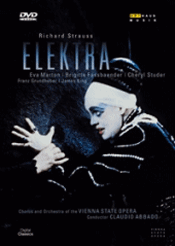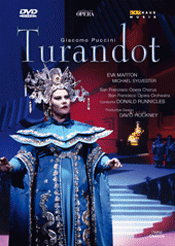Recently in Reviews
English Touring Opera are delighted to announce a season of lyric monodramas to tour nationally from October to December. The season features music for solo singer and piano by Argento, Britten, Tippett and Shostakovich with a bold and inventive approach to making opera during social distancing.
This tenth of ten Live from London concerts was in fact a recorded live performance from California. It was no less enjoyable for that, and it was also uplifting to learn that this wasn’t in fact the ‘last’ LfL event that we will be able to enjoy, courtesy of VOCES8 and their fellow vocal ensembles (more below …).
Ever since Wigmore Hall announced their superb series of autumn concerts, all streamed live and available free of charge, I’d been looking forward to this song recital by Ian Bostridge and Imogen Cooper.
The Sixteen continues its exploration of Henry Purcell’s Welcome Songs for Charles II. As with Robert King’s pioneering Purcell series begun over thirty years ago for Hyperion, Harry Christophers is recording two Welcome Songs per disc.
Although Stile Antico’s programme article for their Live from London recital introduced their selection from the many treasures of the English Renaissance in the context of the theological debates and upheavals of the Tudor and Elizabethan years, their performance was more evocative of private chamber music than of public liturgy.
In February this year, Albanian soprano Ermonela Jaho made a highly lauded debut recital at Wigmore Hall - a concert which both celebrated Opera Rara’s 50th anniversary and honoured the career of the Italian soprano Rosina Storchio (1872-1945), the star of verismo who created the title roles in Leoncavallo’s La bohème and Zazà, Mascagni’s Lodoletta and Puccini’s Madama Butterfly.
Evidently, face masks don’t stifle appreciative “Bravo!”s. And, reducing audience numbers doesn’t lower the volume of such acclamations. For, the audience at Wigmore Hall gave soprano Elizabeth Llewellyn and pianist Simon Lepper a greatly deserved warm reception and hearty response following this lunchtime recital of late-Romantic song.
Collapsology. Or, perhaps we should use the French word ‘Collapsologie’ because this is a transdisciplinary idea pretty much advocated by a series of French theorists - and apparently, mostly French theorists. It in essence focuses on the imminent collapse of modern society and all its layers - a series of escalating crises on a global scale: environmental, economic, geopolitical, governmental; the list is extensive.
For this week’s Live from London vocal recital we moved from the home of VOCES8, St Anne and St Agnes in the City of London, to Kings Place, where The Sixteen - who have been associate artists at the venue for some time - presented a programme of music and words bound together by the theme of ‘reflection’.
'Such is your divine Disposation that both you excellently understand, and royally entertaine the Exercise of Musicke.’
Amongst an avalanche of new Mahler recordings appearing at the moment (Das Lied von der Erde seems to be the most favoured, with three) this 1991 Mahler Second from the 2nd Kassel MahlerFest is one of the more interesting releases.
‘And there was war in heaven: Michael and his angels fought against the dragon; and the dragon fought and his angels, And prevailed not; neither was their place found any more in heaven … that old serpent … Satan, which deceiveth the whole world: he was cast out into the earth, and his angels were cast out with him.’
If there is one myth, it seems believed by some people today, that probably needs shattering it is that post-war recordings or performances of Wagner operas were always of exceptional quality. This 1949 Hamburg Tristan und Isolde is one of those recordings - though quite who is to blame for its many problems takes quite some unearthing.
There was never any doubt that the fifth of the twelve Met Stars Live in Concert broadcasts was going to be a palpably intense and vivid event, as well as a musically stunning and theatrically enervating experience.
‘Love’ was the theme for this Live from London performance by Apollo5. Given the complexity and diversity of that human emotion, and Apollo5’s reputation for versatility and diverse repertoire, ranging from Renaissance choral music to jazz, from contemporary classical works to popular song, it was no surprise that their programme spanned 500 years and several musical styles.
The Academy of St Martin in the Fields have titled their autumn series of eight concerts - which are taking place at 5pm and 7.30pm on two Saturdays each month at their home venue in Trafalgar Square, and being filmed for streaming the following Thursday - ‘re:connect’.
The London Symphony Orchestra opened their Autumn 2020 season with a homage to Oliver Knussen, who died at the age of 66 in July 2018. The programme traced a national musical lineage through the twentieth century, from Britten to Knussen, on to Mark-Anthony Turnage, and entwining the LSO and Rattle too.
With the Live from London digital vocal festival entering the second half of the series, the festival’s host, VOCES8, returned to their home at St Annes and St Agnes in the City of London to present a sequence of ‘Choral Dances’ - vocal music inspired by dance, embracing diverse genres from the Renaissance madrigal to swing jazz.
Just a few unison string wriggles from the opening of Mozart’s overture to Le nozze di Figaro are enough to make any opera-lover perch on the edge of their seat, in excited anticipation of the drama in music to come, so there could be no other curtain-raiser for this Gala Concert at the Royal Opera House, the latest instalment from ‘their House’ to ‘our houses’.
"Before the ending of the day, creator of all things, we pray that, with your accustomed mercy, you may watch over us."
Reviews

25 Mar 2010
Eva Marton in Puccini and Strauss
At one point in her career, Eva Marton appeared poised to be the true inheritor of Birgit Nilsson’s legacy roles: Wagner and Strauss’s most dramatic heroines, as well as key Italian roles (Puccini in particular).
Ultimately the Marton career — which continues to this day — will not rival that of Nilsson’s. The two DVDs reviewed here give evidence of the power that Marton possessed at her best and of the weakness that kept her from truly assuming the Nilsson legacy.
Recorded at the Vienna State Opera house in 1989, this staging of Richard Strauss and Hugo von Hofmannsthal’s Elektra is one of the glories of live opera on film, deserving of eternal availability. The DVD picture has great clarity, despite the darkness of Hans Schavernoch’s set design. Other than the cliché of a huge statue head, toppled on its side, the set manages to be suitably representative of a decaying palace as well as an imposing, theatrical space, dominated by the mammoth body of the statue from which the head apparently dropped, draped with the ropes that seem to have enabled the decapitation. Sooner or later most of the characters cling to and twist around those ropes, an apt stage metaphor for the remorseless repercussions from the murder of Agammenon by his unfaithful wife Klytämnestra and her paramour, Aegisthus. Reinhard Heinrich’s costumes capture a distant era while sustaining a creepily modern look — part Goth, part homeless, part Spa-wear.
Director Harry Kupfer does brilliant work with the cast. Here Marton seems like a major stage performer. Her Elektra boils inside with hatred and disgust, but she can’t let it show. Marton’s impassive mask draws attention to the steely coldness of her eyes. When she recognizes her brother, Orestes, and knows that her wish will soon be fulfilled, she won’t allow herself conventional jubilation. Instead, she sinks back upon her brother and lets the fire die out of her eyes. Her dance of mortal joy at the end finds her wrapping herself in those ropes trailing from her father’s statue — she lived and died for him; there is no escape. Those who know Marton from her later years will be astounded by the firmness of her delivery — never wobbly, never shrieky. If we evaluate a performer by his or her best, Marton proves herself a great singer here.
Cheryl Studer finds a fire, too, in her Chrysothemis. Neither Kupfer or Brigitte Fassbaender will go for any ghoulish caricature for Klytämnestra, which makes her scarier. James King brings more of his heroic tone that one might expect at this stage of his career to the weaselly Aegisthus. Franz Grundheber is in fine form as Orestes, and Kupfer’s inclusion of Orestes at the end, covered in blood and both triumphant and aghast, ensures a shattering conclusion. Claudio Abbado gets a paradoxical performance out of the Vienna State Opera forces — both brutal and refined.

Five years later in San Francisco, Marton is just not the same singer as Turandot. She relies on conventional soprano diva mannerisms, but more damagingly, the voice has deteriorated. High sections are half-hooted, half-screamed, and extended notes flutter from semi-tone to semi-tone. Truthfully, a lot of Turandots sound like this, and many sound worse. Marton herself had established the measure of her abilities with the earlier Elektra; this is simply at a lower level.
The chief attraction here is as a recorded testament to the beauty and ingenuity of David Hockney’s sets. This classic production still gets trotted out (I saw it in San Francisco and San Diego in the early 2000s). However, film doesn’t capture its beauty and charm well. The stage picture is too dark, and frequent close-ups dim the theatrical effect.
Michael Sylvester seemed poised for a notable career at this point, and his Calaf has force as necessary and yet some sweetness of tone. Ian Falconer’s costume doesn’t flatter the tenor, who has a barrel chest and spindly legs. My sister and I had a debate as to whether Mr. Sylvester’s eyes cross at the high note of “Nessun dorma,” but only the wickedly curious will want to get this set to make their own judgment on that. The rest of the cast tends to the pedestrian — Lucia Mazzaria a forgettable Liu, Kevin Langan a prosaic Timur, and the singers of Ping, Pang, and Pong making their scene feel dreadfully long. Donald Runnicles seems to want the evening over fast, with many tempos just a bit too fast.
It is the classic Elektra for which Eva Marton should be remembered.
Chris Mullins

